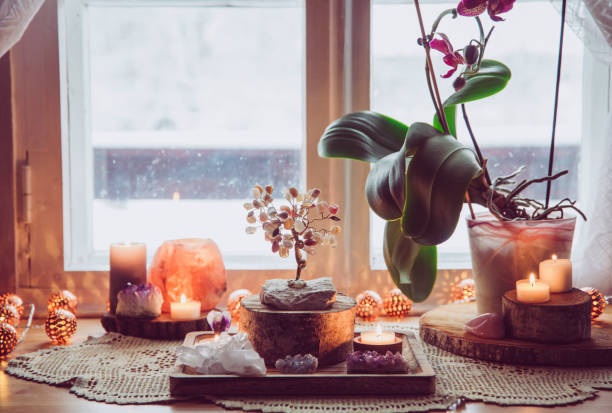"Incorporating Feng Shui Principles in Modern Home Decor"
Home decor is not just about aesthetics; it's also about creating a harmonious environment that promotes well-being. One ancient practice that has been gaining popularity in modern times for this purpose is Feng Shui. This Chinese philosophical system of harmonizing humans with their surrounding environment can be a valuable guide in home decor. This article delves into the history of Feng Shui, its principles, and how to incorporate it into modern home decor for a balanced and peaceful living space.

A Glimpse into the Ancient Art of Feng Shui
Originating in ancient China, Feng Shui is a pseudoscience that deals with the flow of energy, or “Qi,” within a space. It aims to balance the energies within a home or workspace to promote health, happiness, and prosperity. This is achieved by arranging furniture, selecting colors, and positioning objects in a way that encourages a positive flow of energy. Over the centuries, Feng Shui has evolved and been adapted into various cultures, including the Western world, where it has influenced interior design trends.
Modern Adoption of Feng Shui Principles
In the contemporary world, Feng Shui is more than just a design trend. It’s a lifestyle choice for those seeking to create a harmonious environment that fosters positive energy. Modern designers often incorporate Feng Shui principles into their work, emphasizing balance, symmetry, and the use of natural elements. The emphasis on open, clutter-free spaces in modern design also aligns with Feng Shui’s focus on promoting the free flow of Qi.
Practicality and Market Trends of Feng Shui Decor
Incorporating Feng Shui into home decor is practical and beneficial in many ways. It promotes a sense of tranquillity, reduces stress, and improves sleep quality. Market trends reveal a growing demand for Feng Shui-inspired home decor items, from strategically placed mirrors to wind chimes and water fountains. These elements not only enhance the aesthetic appeal of homes but also contribute to the overall well-being of the inhabitants.
The Impact of Feng Shui on Daily Living
The beauty of Feng Shui lies in its adaptability and the positive impact it can have on daily living. By following simple Feng Shui principles, you can transform your living space into a serene sanctuary. For instance, placing your bed in the “command position” can improve sleep quality, while having a clutter-free entrance can invite positive energy into your home.
How to Incorporate Feng Shui into Your Home
Incorporating Feng Shui into your home doesn’t require a complete makeover. Start by decluttering your space to allow the free flow of energy. Place your furniture in a way that promotes conversation and interaction. Use colors that evoke the energy you want in each room. For instance, blues and greens promote relaxation and are ideal for bedrooms, while yellows and oranges stimulate creativity, making them suitable for workspaces.
Feng Shui is more than just a design philosophy; it’s a way of life that promotes harmony and well-being. By incorporating its principles into your home decor, you can create a space that is not just aesthetically pleasing but also nurturing and peaceful. Whether you’re a Feng Shui novice or a seasoned practitioner, there’s always room to learn and incorporate this ancient wisdom into your modern home.




